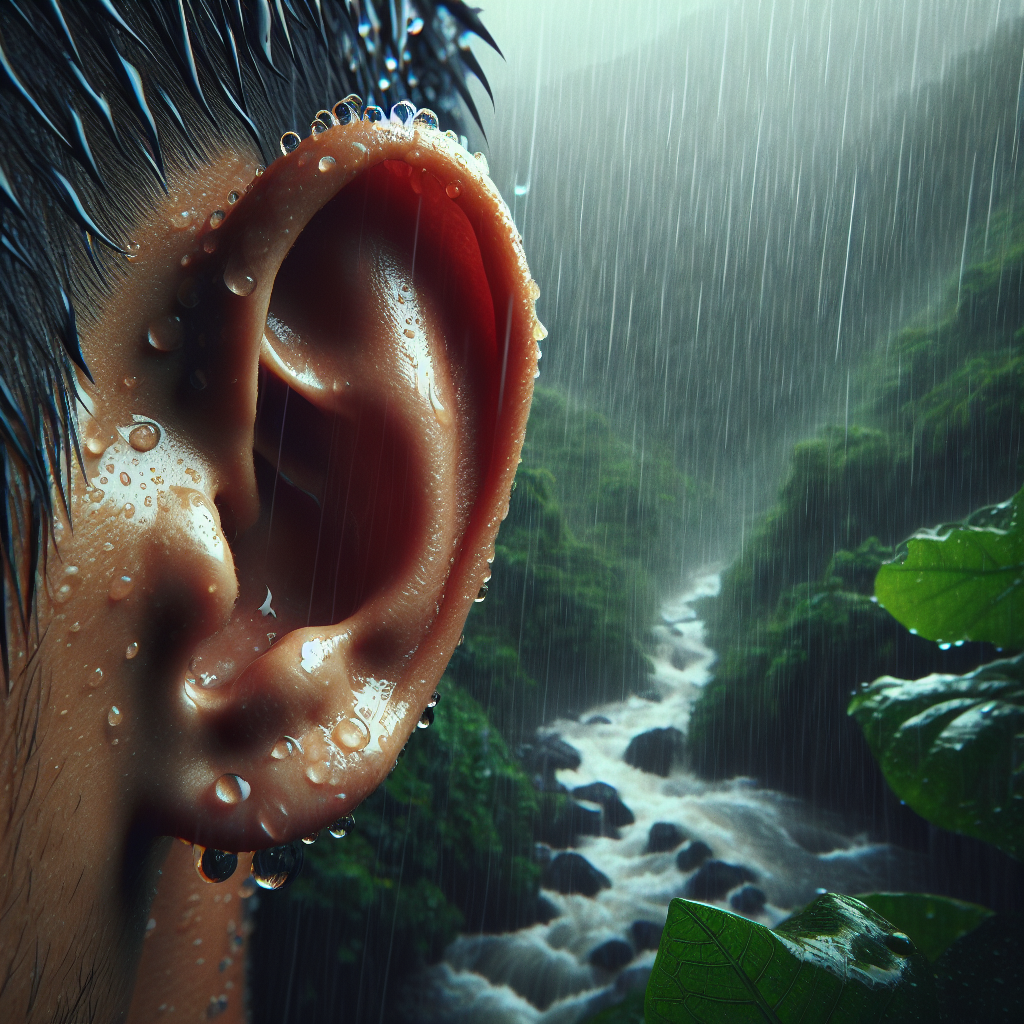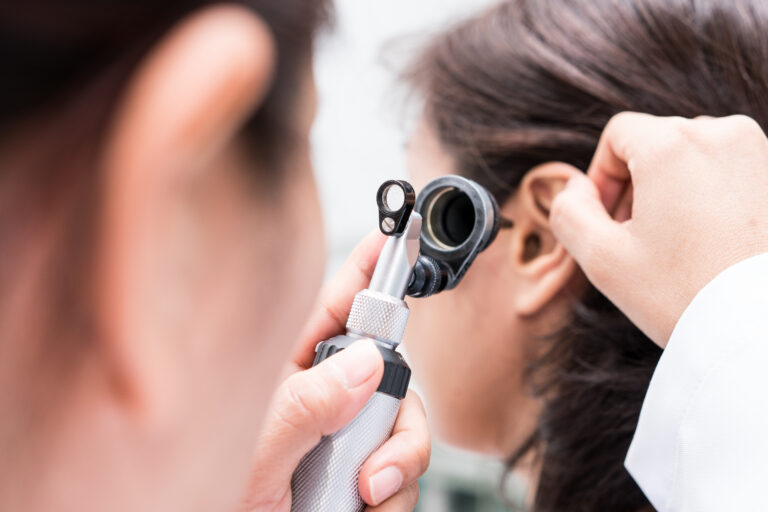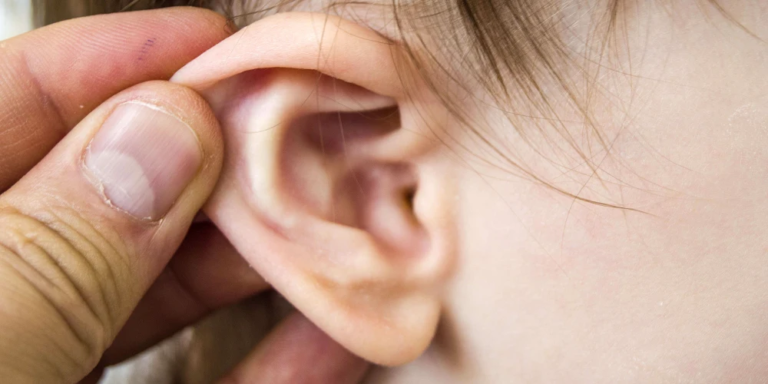Ear infections are more prevalent during the rainy season due to increased humidity, which creates a breeding ground for bacteria and fungi. At Manasi Mehra Clinic, we specialize in diagnosing and treating these complications with precision and care.
Why Ear Infections Spike in Rainy Season
Increased humidity levels during the rainy season create favorable conditions for ear infections. The moisture and warmth of this time disturb the ear’s natural defense systems, allowing harmful organisms to proliferate. Typically, our ears maintain a delicate balance where wax acts as a barrier against invaders, while the ear canal stays dry. However, during the rainy season, fluctuations in humidity compromise these defenses.
Moisture-laden environments become a breeding ground for bacteria and fungi. The altered microclimate in the ear favors the growth of these organisms, leading to infections. Swimmer’s ear, or otitis externa, is particularly common as rainwater accumulates in the ear canal. Contaminated water from swimming pools and lakes compounds the problem, introducing pathogens directly into the ear.
Moreover, the fluctuating temperatures during this season can sometimes irritate the ear canal. This irritation contributes to inflammation, which further hinders the ear’s defenses and encourages infections. Improper ear hygiene in such conditions can exacerbate the situation. Using cotton swabs or inserting foreign objects while cleaning can damage the ear canal and strip away protective wax, opening the gateway for infections.
Adopting preventative measures becomes imperative to safeguard ear health during this season. Simple practices such as keeping your ears dry and avoiding water-related activities in contaminated areas can help mitigate the risk. Routine check-ups and early detection through professional evaluation play a crucial role.
The expertise of specialists like Dr. Manasi Mehra is essential. She can assess the condition accurately and offer tailored treatment plans. Early intervention often prevents more severe complications, keeping infections from progressing. A comprehensive approach that combines professional care with personal hygiene measures provides the best defense against ear infections during the rainy season. It’s important to recognize the factors exacerbating the risk and seek professional help when needed.
For further guidance on preventing ear health issues during weather changes, you might find valuable insights in Dr. Mehra’s article on winter care for your ears. While it focuses on winter, the prevention principles apply well to the rainy season too.
Symptoms to Watch Out For
Ear infections during the rainy season can be more than just nuisances; they require keen attention to symptoms that may present. Early identification of ear infection symptoms is vital for effective management, especially in susceptible children and adults. The most common signs include **ear pain**, **discomfort**, and **itchiness**. Observing a yellowish or clear **discharge** from the ear is particularly concerning. These symptoms, often mild initially, can intensify swiftly due to the damp conditions associated with rainy weather.
Humidity levels increase during the rainy season, creating a breeding environment for bacteria and fungi. This elevates the risk of ear infections, turning minor irritations into potential severe cases. Ear pain may start as a dull ache and progress into a throbbing sensation. Similarly, what begins as mild itching could escalate into intense discomfort. Discharge can start subtly but might become profuse and foul-smelling. If such symptoms are disregarded, they can lead to chronic ear conditions or even hearing loss.
Persistent or severe symptoms necessitate urgent expert evaluation. Many individuals delay seeking help, risking complications like eardrum damage or deeper infections. In this context, Dr. Manasi Mehra’s expertise becomes essential. Her ability to pinpoint the underlying cause ensures a precise diagnosis. With her experience, she prevents the escalation of the infection, protecting patients from unnecessary pain and long-term consequences. Her approach is both scientific and compassionate, offering peace of mind, especially when conditions could worsen due to the seasonal climate.
Attentiveness during this time is not only prudent but necessary. Not every earache or itchiness signals an infection, but remaining observant is beneficial. It’s crucial for individuals, particularly those who spend time outdoors in humid weather or swim in contaminated water, to monitor their symptoms closely.
If you notice recurring ear infections, Dr. Mehra’s advice and treatment can be a beacon of relief. Her specialized knowledge in ENT conditions is outlined in her informative blog post on repeated ear infections and prevention. Consulting an expert ensures optimal care, keeping our ears healthy even when the weather turns hostile.
Expert Treatments and Preventive Tips
At the Manasi Mehra Clinic, cutting-edge treatments are meticulously designed to address ear infections effectively, particularly during challenging rainy seasons. Dr. Manasi Mehra’s expertise in otology and micro ear surgery guarantees precise and tailored treatments. She combines her profound knowledge with an empathetic approach ensuring every patient feels comfortable and understood throughout their healing journey. Her accurate diagnostics serve as the cornerstone of successful treatments, swiftly identifying the core issues and nipping them in the bud.
Patients receive state-of-the-art care through minimally invasive micro ear surgeries, reducing recovery time and pain. Dr. Mehra’s meticulous surgical techniques not only resolve current infections but also aim to prevent future occurrences. Her integration of advanced technology allows for real-time monitoring and rapid intervention, setting a standard in specialized ear care.
Preventive measures are essential in safeguarding ear health, especially when rain-induced humidity heightens infection risks. To minimize moisture in potentially vulnerable ears, individuals should dry ears gently after exposure to rain or swimming. Utilizing a warm, soft towel or a hairdryer on a low setting can effectively remove excessive moisture. Regular ear hygiene practices, like gentle cleaning around the outer ear without inserting objects, can significantly reduce infection probabilities.
During the rainy season, immunity-boosting practices such as maintaining a balanced diet and staying hydrated play a crucial role as well. Incorporating foods rich in vitamins C and E can naturally bolster the body’s defenses against infections (more home treatments here).
However, persistent or severe symptoms necessitate a professional evaluation. Consulting an ENT specialist ensures that any underlying issues are addressed promptly, averting more severe complications. Dr. Mehra’s clinic offers a supportive environment where individualized treatment plans mirror the specific needs and conditions of each patient.
To ensure comprehensive care, readers are encouraged to reach out for an appointment. Embrace the security of specialized treatment and a brighter, healthier future by visiting the contact page of the Manasi Mehra Clinic.
Final words
Ear infections become more common in the rainy season due to increased humidity. Understanding symptoms and seeking prompt, expert care at Manasi Mehra Clinic can prevent complications and ensure effective treatment. Stay proactive in maintaining ear hygiene and consult an ENT specialist for specialized advice and solutions.




